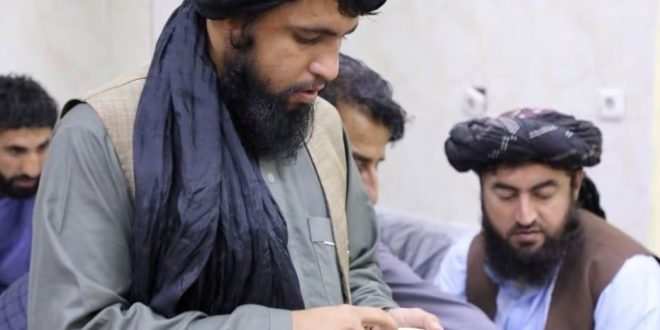‘No controls against Taliban diversion of Afghanistan funds’, warns U.S. watchdog

KABUL – The U.S. Special Inspector General for Afghanistan Reconstruction (SIGAR) has informed Congress that there are no specific controls in place to prevent the diversion or misuse of funds intended for Afghanistan. The watchdog’s response to a Congressional inquiry on the Switzerland-based Afghan Fund, holding $3.5 billion, highlights significant uncertainties surrounding its funds.
According to SIGAR, the Afghan Fund, established in September 2022, aims to “receive, protect, preserve, and disburse” assets through Afghanistan’s central bank for the benefit of the Afghan people. However, more than a year later, the fund has made no disbursements for activities benefiting the Afghan people.
Despite the fund’s unanimous vote requirement for decisions on disbursement, there are currently no controls addressing the risk of Taliban diversion. The de facto Taliban government, widely unrecognized internationally, has been accused of human rights abuses, including restrictions on women’s rights.
SIGAR’s report reveals that the U.S. Treasury and State Department are hesitant to transfer funds back to Afghanistan’s central bank, the Da Afghanistan Bank (DAB), until it implements anti-money laundering and countering-terrorist-financing controls. The DAB must also demonstrate independence and undergo a third-party needs assessment.
Afghanistan, facing international isolation and a severe drought, is on the brink of a humanitarian crisis, with over half of its population requiring assistance in 2024. The SIGAR report raises concerns about the future of the Afghan Fund’s $3.5 billion, half of the $7 billion in Afghan central bank assets seized by the U.S. in 2021.
The report details challenges, including the reluctance of the U.S. departments to support fund transfer, citing concerns about DAB’s officials’ ties to the Taliban. SIGAR notes ongoing efforts to develop safeguards, but existing controls do not specifically address the risk of Taliban diversion. Additionally, conflicts of interest within the fund’s board and concerns about vetting processes add complexity to the situation.
As bureaucratic debates unfold, the people of Afghanistan continue to face challenges, emphasizing the interconnectedness of the financial welfare of the Afghan state and the well-being of its citizens amid the complex geopolitical landscape.
Culled from Afghanistan Times

